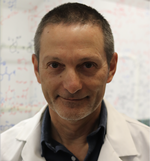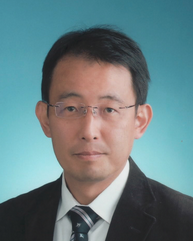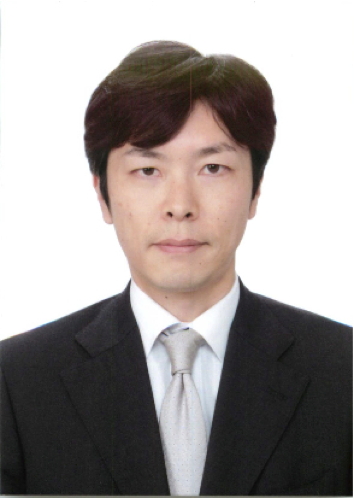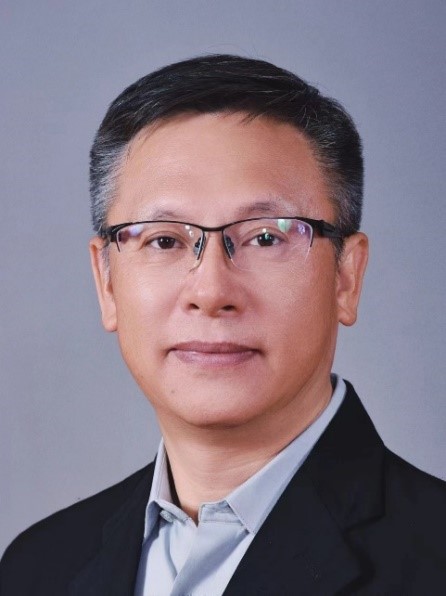ACMMT 2025 Speakers
Prof. Vladimir Gevorgyan
University of Texas at Dallas, USA
Vladimir Gevorgyan received his PhD from
the Latvian Institute of Organic Synthesis in 1984. After two years of
Postdoctoral research (1992-1994, JSPS- and Ciba-Geigy International
Postdoctoral Fellowships) at Tohoku University, Japan, and a visiting
professorship (1995) at CNR, Bologna, Italy, he joined faculty at Tohoku
University (Assistant Professor, 1996; Associate Professor, 1997-1999).
Vladimir Gevorgyan joined UIC as an Associate Professor in 1999. He was
promoted to the rank of Full Professor in 2003, and a Distinguished
Professor of Liberal Arts and Sciences in 2012. In 2019, Vladimir Gevorgyan
moved to Texas to become a Robert A. Welch Distinguished Chair in Chemistry
at the University of Texas at Dallas. He also holds a Professor position at
the University of Texas Southwestern Medical Center.
Gevorgyan group focuses on development of novel synthetic methodologies. The
emphasis is placed on conceptual novelty and potential application of the
newly developed methods in synthetic and medicinal chemistry and materials.
Prof. Hiroyuki Nakamura
Tokyo Institute of Technology, Japan
Hiroyuki Nakamura was received his PhD
from Tohoku University under the supervision of Professor Yoshinori Yamamoto
in 1996. He became an assistant professor at Kyushu University (1995-1997)
and at Tohoku University (1997-2002). He worked as a visiting assistant
professor at University of Pittsburgh with Professor D. Curran (2000-2001).
In 2002, he was appointed as an associate professor at Gakushuin University
and promoted as a professor in 2006. In 2013, he was appointed as a
professor at Tokyo Institute of Technology. He received the Chemical Society
of Japan Award for Young Chemists in 1999 and the Incentive Award of the
Japanese Society for Molecular Target Therapy of Cancer in 2007. He became
president of the Japanese Society of Neutron Capture Therapy in 2015. His
research interests include synthetic methodology, medicinal chemistry,
chemical biology, photodynamic therapy, and neutron capture therapy.
Prof. Kazuo Umemura
Tokyo University of Science, Japan
Dr. Kazuo Umemura is a full professor of
Tokyo University of Science. His specialty is biophysics, especially,
nanobioscience and nanobiotechnology. One of his recent interests is
nanoscopic research of hybrids of biomolecules and carbon nanotubes (CNTs).
Unique structures and physical/chemical properties of the hybrids are
promising in biological applications such as nanobiosensors and drug
delivery.
Dr. Umemura received his B.S. degree in Physics from Nagoya University. His
M.S. and Ph.D. degrees were given from Tokyo Institute of Technology. After
working at several institutes/universities as a researcher in Japan and in
China, he became a professor of Tokyo University of Science. Kagurazaka
campus of Tokyo University of Science is located at the center of Tokyo, so
five subway/railway lines reach in front of the campus.
Prof. Yasuhiro Morisaki
Kwansei Gakuin University, Japan
Yasuhiro Morisaki is Professor at Kwansei
Gakuin University. He graduated from Kyoto University in 1995, and then, he
received Ph.D. from Kyoto University in 2000. After a six-month postdoctoral
stay at Osaka National Research Institute, he joined the group of Professor
Yoshiki Chujo as Assistant Professor at Kyoto University in 2000. From 2004
to 2005, he carried out postdoctoral work at the University of Alberta. He
became lecturer at Kyoto University in 2008 and full Professor at Kwansei
Gakuin University in 2015. His research interests focus on polymer and
organic synthesis, in particular, cyclophane chemistry.
Previous Speakers
Prof. Steven Y. Liang (Fellow of ASME & SME)
Morris M. Bryan, Jr. Professor for Advanced Manufacturing Systems
Georgia Institute of Technology, USA
Steven Y. Liang holds a 1987 Ph.D. in Mechanical Engineering from University of California at Berkeley, USA, and was founding Director of Precision Machining Research Consortium and Director of Manufacturing Education Program and has been Morris M. Bryan, Jr. Professor for Advanced Manufacturing Systems at Georgia Institute of Technology, USA. Dr. Liang served as President of Walsin Lihwa Corp., a publicly-traded manufacturing entity with over USD6 billions of yearly revenue. Dr. Liang's technical interests lie in advanced manufacturing, precision engineering, and materials-centric production, and in these areas he has supervised over 90 post-doctoral studies, Ph.D. dissertations, and M.S. theses and has authored in excess of 450 book chapters, archival journal papers, and professional conference articles. He has delivered more than 60 keynotes and invited seminars at industries, peer institutions, and conferences in over 20 countries on manufacturing science and technology. Dr. Liang served as President of North American Manufacturing Research Institution and Chair of Manufacturing Engineering Division of The American Society of Mechanical Engineers. He is Editor-in-Chief of Journal of Manufacturing and Materials Processing (MDPI) and Editor of International Journal of Precision Engineering and Manufacturing (Springer). Dr. Liang is the recipient of Robert B. Douglas Outstanding Young Manufacturing Engineer Award of SME, Ralph R. Teetor Education Award of SAE, Blackall Machine Tool and Gage Award of ASME, Milton C. Shaw Manufacturing Research Medal of ASME, etc. Dr. Liang is a fellow of both ASME and SME.
Prof. Zhengming Sun
Southeast University, China
Zhengming Sun is a National Distinguished Expert, Chair Professor at Southeast University, Dean of the School of Materials Science and Engineering. He obtained his undergraduate degree from Southeast University, a master's degree from the Institute of Metal Research (IMR), Chinese Academy of Sciences, and a joint Ph.D. from IMR and University of Vienna. Then, he served as a research associate at IMR. In March 1993, he joined the Institute of Physical Chemistry, the University of Vienna, as a guest researcher. In August 1994, he was invited to join the Toyohashi University of Technology, Japan, under the support of Daiko Foundation. He obtained a fellowship from the Japan Society for the Promotion of Science (JSPS) in August 1995. In April 1997, he joined the Tohoku National Industrial Research Institute (Japan), as a research officer. This institute was later reorganized to the National Institute of Advanced Industrial Science and Technology (AIST, Japan), where he was promoted to a senior research scientist and served as an associate to the director of the International Affairs Division. He also worked at Drexel University, USA, in February 2004 for one year, on his sabbatical leave from AIST. He later joined the School of Materials Science and Engineering, Southeast University, and was appointed the dean of the school in 2019. His research interests cover the research and development of metallic materials, intermetallic compounds, ceramics and composites. In the past decade, he devoted most of his energy to the MAX phase materials, a family of ternary compounds, which combines the best attributes of metals and ceramics. Recently he is more engaged in the study of energy storage materials such as MXenes, the derivatives of MAX phases, for Li-ion batteries, super capacitors, Li-S batteries, Zn-ion batteries. He has published more than 300 research papers in journals such as Nat. Commun., Adv Mater, Adv Energy Mater, Energy Environ Sci, Adv Funct Mater, Acta Mater, and holds more than 40 patents. He serves as a director of the Chinese Materials Research Society, executive director of the Chinese Society for Composite Materials, vice president of the Jiangsu Materials Research Society. He has received awards such as the Overseas Chinese Contribution Award, Jiangsu Province Science and Technology Award, and the Scientific and Technological Award of the Composite Materials Society. More information is available at the site of his group http://smse.seu.edu.cn/sun/
Prof. Shinji Takeoka
Waseda University, Japan
Shinji Takeoka is a professor of Department of Life Science and Medical Bioscience, School of Advanced Science and Engineering, Waseda University. He received B.S. degree(1986), M.S. degree(1988) , Ph. D. degree(1991) from Waseda University, Japan. He worked as a research associate at Waseda University School of Science and Engineering from 1991. Then he worked as Visiting Fellow, U. Pennsylvania School of Medicine for 1 year from 1998 to 1999. In 2005, he was promoted as professor of Waseda University. Prof. Shinji Takeoka is the Associate Director of Research Promotion Division, Waseda University. He is also the President of The Society of Blood Substitutes, Japan. His research interests include biomedical Engineering, biological material sciences, molecular assembling science and engineering.
Prof. Sarawut Rimdusit
Chulalongkorn University, Thailand
Dr. Sarawut Rimdusit is a full professor of the Department of Chemical Engineering, Faculty of Engineering, Chulalongkorn University, Bangkok, Thailand. He received his master and doctoral degrees from the Department of Macromolecular Science and Engineering, Case Western Reserve University, Cleveland, Ohio, USA in 1997 and 2000, respectively. He worked as a post-doctoral fellow under a Hitachi research fellowship in 2005 and 2008 at Toyohashi University and Technology and Monbusho research fellowship in 2003 at the Japan Aerospace Exploration Agency (JAXA, formerly ISAS). His research is concentrated on multicomponent polymeric systems based on polybenzoxazines and some network forming polymers. His recent research focuses on the use of polybenzoxazine alloys as functional materials including shape memory materials and thermoreversible light scattering polymers. He has published 1 book on polybenzoxazine alloys and composites (Springer), 10 book chapters in English, 4 book chapters in Japanese and more than 70 international papers related to the alloys and composites of polybenzoxazines.








